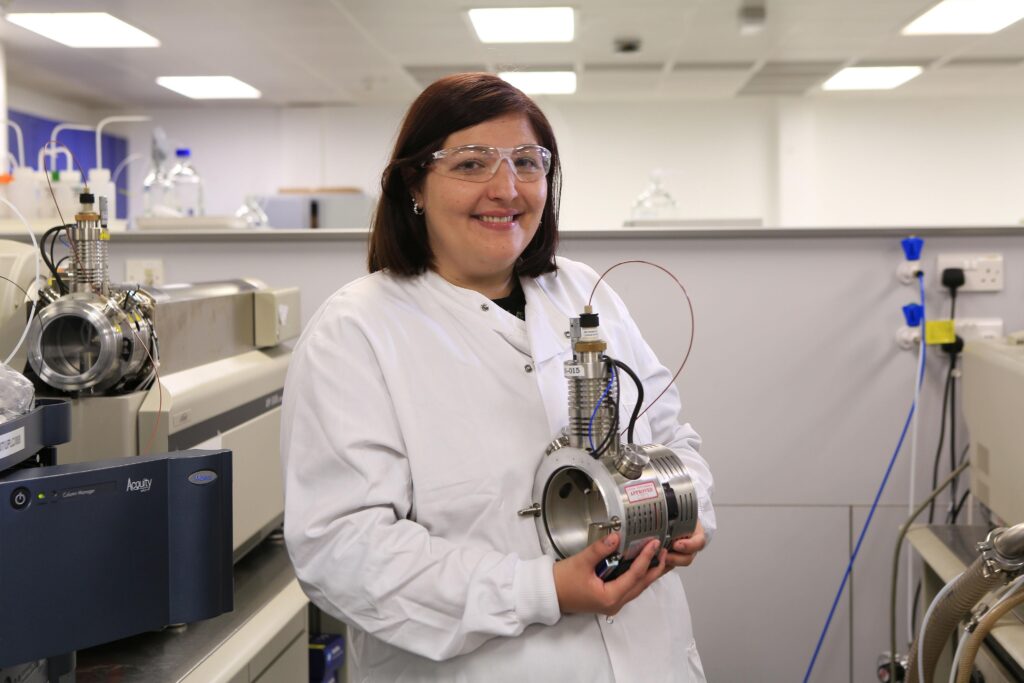
Talent Development Insight: Putting work-based learning at the heart of Life and Chemical Sciences
Putting work-based learning at the heart of Life and Chemical Sciences
Ronnie Palin, Key Sector manager – Life & Chemical Sciences at Skills Development Scotland (SDS) reflects on the efforts to highlight how apprenticeships can be a key ingredient in meeting the skills needs of the life sciences sector.
Last year SDS along with partners launched the Life & Chemical Sciences Skills Investment Plan. The plan looked in depth into how the sector could source the future skills needed for growth and how pathways into the industry could be developed.
Whilst much of the focus has been on university graduates, the plan stressed the need for a diverse approach to recruitment – including the use of apprenticeships.
In June this year, SDS, along with Forth Valley College, hosted a special event for employers and apprentices from the Life Sciences sector at College’s Stirling campus.
We heard first-hand from employers on the transformative effect that their apprenticeships’ programmes have had on the business and its wider workforce, including from Stephen Madden from Charles River Laboratories.
He commented: “The apprentices have been a big benefit to us in a number of different ways. They have a positive impact on our other staff because it allows us to give more junior members of the team supervisorial responsibilities so that can grow in their role too.”
Providing a clear career pathway
Stephen also highlighted how apprenticeships offer an excellent pathway for new employees, which can really help with staff retention and planning.
He said: “When apprentices join the company, they have a very clear view of where their career is going to go over the next couple of years and they really buy into that. We only lose them a day a week and this actually allows us to plan around this day.”
The event in Stirling, the first of its kind, brought together employers, learning providers as well as current and former apprentices to learn more about the wider apprenticeship family – Foundation, Modern and Graduate Apprenticeships.
Emma O’Halloran from Glasgow Scientific Services had recently completed her apprenticeship and shared a little of her own career pathway.
She said: “I started an HNC in Applied Science and a practical qualification called an SVQ in Laboratory & Associated Technical activities. Because of the support I received and the good level of training, I was able to complete this in two years.”
Emma has continued her learning at UWS where, thanks to the support of her employer, she is undertaking a degree in Applied Bioscience part-time whilst continuing to work in the sector.
Emma’s story is one of many, and in 2018, 111 people started an apprenticeship within the sector, including 39 Foundation Apprenticeships.
Another attendee of the event, Scott Neilson, completed an Apprenticeship with the University of Edinburgh as a Laboratory Technician in the school of Biological Sciences, and has become a powerful ambassador for apprenticeships within the life sciences sector.
Scott, who admits he did not thrive in an academic environment, has been keen to encourage other young people into to follow in his footsteps.
He said: “I am more of a hands-on person – and if you prefer learning whilst doing, I would suggest that apprenticeships are a fantastic route to go down.”
What’s next?
It’s very encouraging to hear young employees talk so positively about their work-based learning. And in fact, the range of apprenticeship opportunities has never been greater. Increasingly, industry and learning providers are working with SDS and others to identify innovative ways to attract and retain a skilled workforce – with a greater focus on multidisciplinary learning opportunities.
An example of this has been the launch of the new apprenticeship in Scientific, Technical & Formulation Processing. This new apprenticeship adds greater flexibility to the system and reflects that people will need to oversee a broader range of tasks and must be multi-disciplined and able to adapt to changing roles.
Support from SDS for the sector is also reflected in increased Foundation Apprenticeship opportunities, with 335 places available in 2019-2021.
The role of employers
Like the Skills Investment Plan itself, solutions to meeting the current and future recruitment needs must be industry-led. The more companies work alongside education and promote the sector to embed work-based learning in their business, the greater the impact it will have.
There is much more information about the apprenticeship programmes and the support available by visiting apprenticeships.scot or by contacting me Ronnie.Palin@sds.co.uk
You can hear more from Stephen, Emma and Scott in this short film.
Dr Ronnie Palin
Ronnie joined Skills Development Scotland in 2013 as a Sector Manager covering Life and Chemical Sciences. Ronnie is responsible for the development and delivery of the Life and Chemical Sciences Skills Investment Plans that will sustain and support the growth of Scotland’s Life and Chemical Science sectors.
He works closely with a range of Science industry and employers, careers advisors and educators to align education provision with industry need. This includes highlighting the vast array of exciting and rewarding career opportunities available for young people in Science to fulfil industry demand.
With a background steeped in science Ronnie spent 15 years working in the Pharmaceutical industry. Designing and developing new drugs in the field of Neuroscience, Oncology, Immunology, Antiinfectives, Anaesthesia and Analgesia. Spanning a range of industries from large multinationals to SMEs.
Ronnie.Palin@sds.co.uk

Please see here for a link to Jack Kay’s ‘Rising Star’ piece from last year: